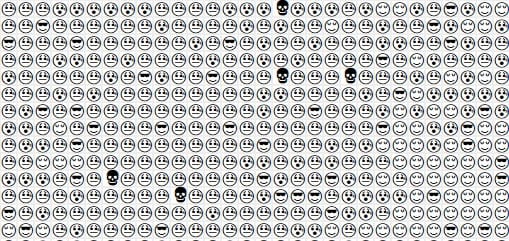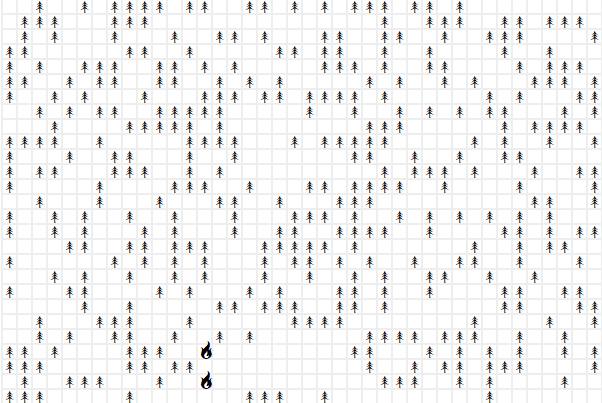The world’s most complex problems, now in emoji

Step into the bustling streets of Grand Theft Auto 5’s Los Santos, or one of the many sun-dappled, monster-rich forests in The Witcher 3. These worlds are so fully realized, and at their best so compellingly true-to-life, that it’s easy to forget that all games, when stripped of the bells and whistles, are only systems operating on a specific set of rules.
But more than just games run on complex systems of interaction, and Nicky Case has made this point before. You might remember Case’s previous project Parable of the Polygons, the cute bit of interactive sociology about geometry and racism. Case developed the game with Vi Hart, adapting sociologist Thomas Schelling’s “Dynamic Models of Segregation” to demonstrate how slight biases can lead to segregation.
don’t worry: it’s all rendered in highly relatable emoji.
In Simulating The World (In Emoji), Case broadens the thesis he once expressed in Parable of the Polygons; instead of seeking to explain a specific issue like segregation, he suggests that learning to think about complex problems in systemic ways is key to understanding the forces shaping the world today. This time, he’s drawing from his own experience surviving the Mad Maxian droughts of California, and showing us how intricate systems can arise from simple rules. If any of this sounds intimidatingly intellectual, don’t worry: it’s all rendered in highly relatable emoji.
The first model in Simulating The World (In Emoji) is a forest. Add in the variable of an occasional lightning strike, and you have a simulation of the ravaging forest fire problem which has been California’s most steadfast tradition the last few decades.

As much a delight as the emoji diagrams is Case’s writing on the topic. In concise and curious terms, Simulating The World (In Emoji) talks us through the variables of invasive species and controlled burns. It might be a stretch to call Case a young Neil deGrasse Tyson, but his explanation of the feedback loops involved in his model (more trees = further spreading fires = more open space = more trees) has a similar enthusiasm and eagerness.
The title of the project is Simulating The World, though, not Simulating A Forest Fire. Using simple rules and emoji of various strains, Case goes on to simulate disease outbreaks, eruptions of conflict and a familiar parable about some racially biased rodents. He ends with an open simulator, the variables of which can be plugged in from scratch. It’s a simulation of anything you want, or anything you care about enough to make, and Case encourages everyone to muck around with it.
It’s tempting to accuse Case of actually oversimplifying problems like this, but Simulating The World (In Emoji) doesn’t set out to explain the intricacies of contagion and quarantine, or conflicts as embittered as the one between Israel and Palestine. He’s simply trying to get people to understand the cycles and patterns at the root of our most complex problems. As Case puts it, “All we gotta do is start thinking in systems, and see the forest for the trees.”
You can play Simulating The World (In Emoji) in your browser.



